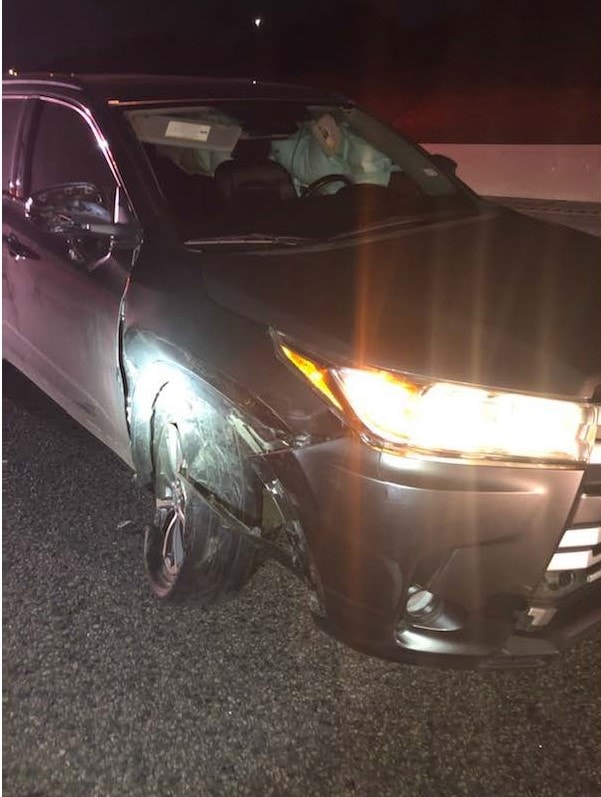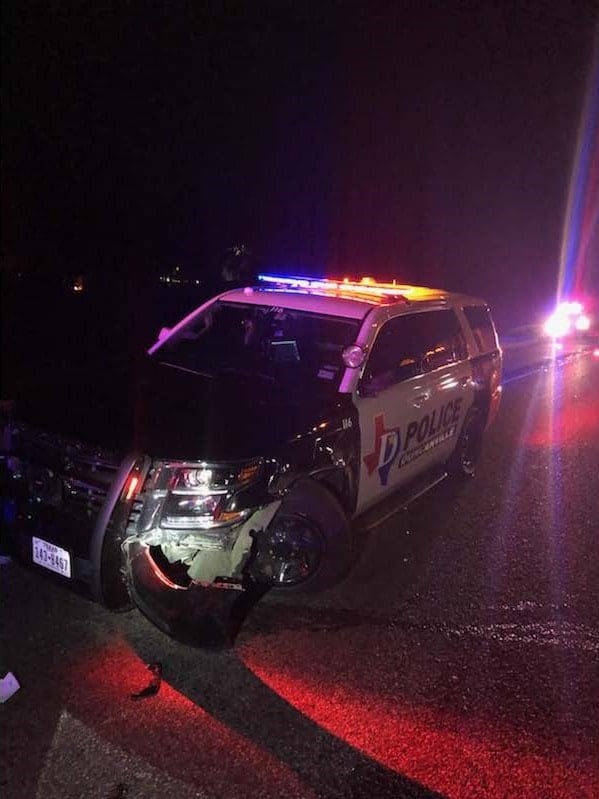Duncanville Police Remind Drivers Of Texas Move Over or Slow Down Law
Stopping on the highway is often dangerous, especially at night. However, there are often circumstances when a vehicle breaks down or there’s an emergency, that requires a vehicle to stop. Police Officers are often in dangerous situations when attempting to help a motorist or when investigating a vehicle, accident, etc.
Last night a Duncanville police vehicle was struck while officers conducted an investigation along Interstate 20 in Duncanville. Thankfully the police vehicle was not occupied and nobody was seriously injured. Please use caution when approaching and passing vehicles stopped along roadways. If you have any questions about the move over or slow down law, please contact our traffic unit. bluna@duncanvillepd.com or bshipman@duncanvillepd.com

Move Over or Slow Down
The side of a highway may be a complex environment, but it’s also the daily workspace for law enforcement, first responders, and roadside construction and maintenance workers. Texas drivers can do their part to keep these workers safe by following the state’s “Move Over or Slow Down” law.
The Move Over or Slow Down law, which traditionally has required drivers to yield to police, fire and emergency vehicles, has been expanded over the years to provide the same protection for TxDOT work crews and other roadside workers.
This law requires drivers to move over a lane or slow to 20 mph below the posted speed limit when approaching emergency vehicles, law enforcement, tow trucks, utility service vehicles, TxDOT vehicles or other highway construction or maintenance vehicles using visual signals or flashing lights activated on the roadside. On roadways with posted speed limits of 25 miles per hour or less, drivers must reduce their speed to 5 miles per hour (Texas Transportation Code 545.157).
Drivers who fail to give emergency and work crews space to safely do their jobs can receive a ticket with a fine of up to $200. If there is a crash that causes injury to a worker, drivers can be fined up to $2,000.












